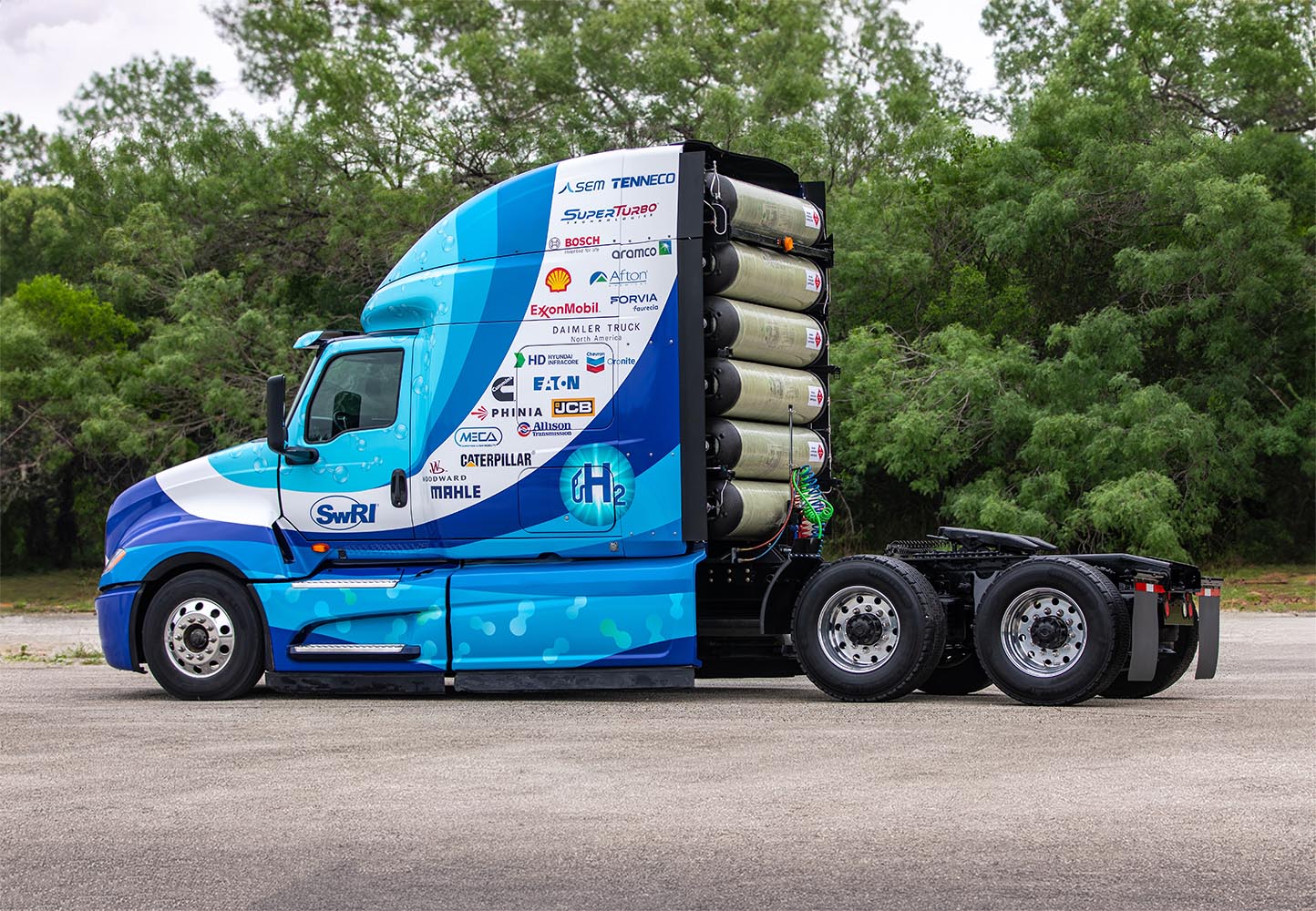
SwRI unveils promising findings on lubricant durability in hydrogen engines
Southwest Research Institute (SwRI) has released new findings on the durability of lubricants in hydrogen-fueled internal combustion engines (H2-ICE). Presented at the 78th STLE Annual Meeting & Exhibition in Minneapolis, Minnesota, U.S.A. in May 2024, the study explores the impact of hydrogen combustion on lubricant performance and longevity.
SwRI launched the Hydrogen Internal Combustion Engine (H2-ICE) Joint Industry Program (JIP) to develop and demonstrate the feasibility of hydrogen-powered engines for heavy-duty applications. SwRI has successfully converted a Cummins X15N engine to run on hydrogen and retrofitted it in a Class 8 heavy-duty vehicle, showcasing its potential to achieve near-zero greenhouse gas (GHG) emissions and ultra-low emissions of nitrogen oxides (NOx) and particulate matter.
Study findings
- Lubricant Interaction: The research highlighted that hydrogen engines have a much smaller flame quench distance and deeper flame penetration into the boundary layer of the cylinder walls. This can lead to increased lubricant oxidation and associated emissions.
- Combustion Byproducts: Concerns about water ingress into lubricants and the potential formation of corrosive nitric acid were addressed. However, the study found minimal water accumulation in lubricants, debunking myths about excessive water production in hydrogen engines.
- Durability Testing: Conducted on a modified Daimler DD15 engine, the study involved a 350-hour test cycle. The results showed that lubricant performance remained stable, with minimal changes in viscosity, Total Acid Number (TAN), and Total Base Number (TBN).
Technical insights
- Engine Modifications: Custom injectors, a split exhaust manifold design, and a draw-through blow-by suction system were used to optimise performance and safety.
- Knock and Pre-Ignition: The engine was closely monitored for knock and pre-ignition, with several instances of automated shutdowns due to pre-ignition.
- Consistency in Results: Despite expectations, the lubricants showed no significant degradation.
Future directions
While the study confirmed the durability of lubricants in hydrogen engines under steady-state, warm conditions, further research is needed to understand lubricant behavior under low-temperature and cold-start scenarios.
Conclusion
SwRI’s research represents a significant step toward integrating hydrogen as a viable fuel for internal combustion engines. By addressing key challenges related to lubricant performance, this study supports the broader adoption of hydrogen technology in heavy-duty transportation, contributing to a cleaner and more sustainable energy future.
To read the full version of this article, check out the digital edition of the Q3 2024 issue of F+L Magazine.








